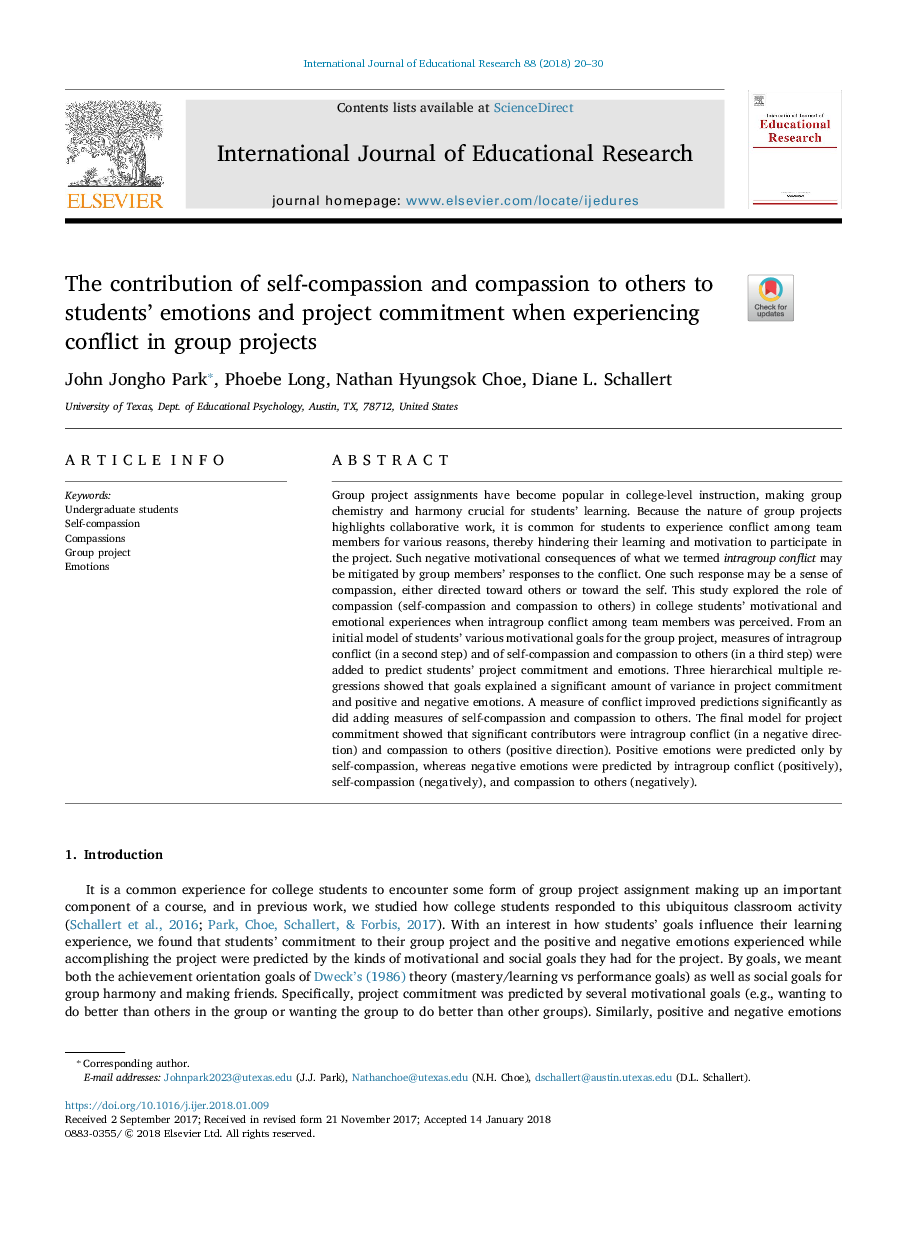ترجمه فارسی عنوان مقاله
مشارکت خودخواهی و محبت نسبت به دیگران به احساسات دانش آموزان و تعهد پروژه زمانی که تجربه درگیری در پروژه های گروهی است
عنوان انگلیسی
The contribution of self-compassion and compassion to others to students emotions and project commitment when experiencing conflict in group projects
| کد مقاله | سال انتشار | تعداد صفحات مقاله انگلیسی |
|---|---|---|
| 126841 | 2018 | 11 صفحه PDF |
منبع

Publisher : Elsevier - Science Direct (الزویر - ساینس دایرکت)
Journal : International Journal of Educational Research, Volume 88, March 2018, Pages 20-30
ترجمه کلمات کلیدی
دانشجوی لیسانس، خودخواهی، بخشندگی، پروژه گروهی، احساسات،
کلمات کلیدی انگلیسی
Undergraduate students; Self-compassion; Compassions; Group project; Emotions;

